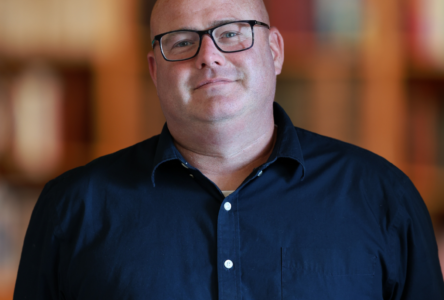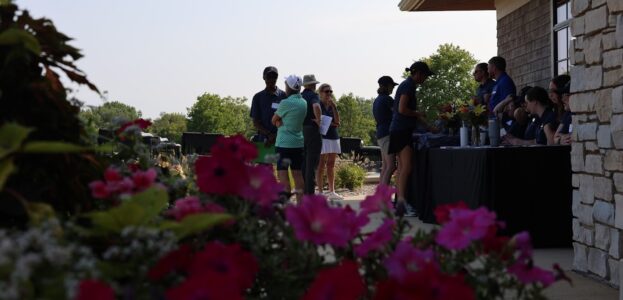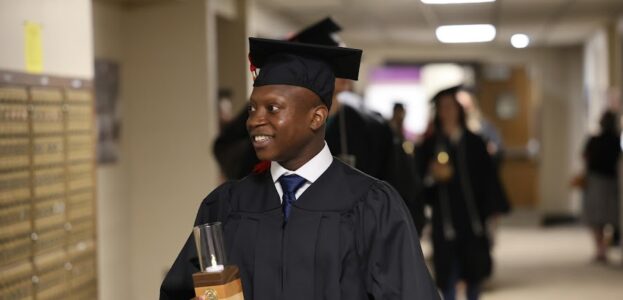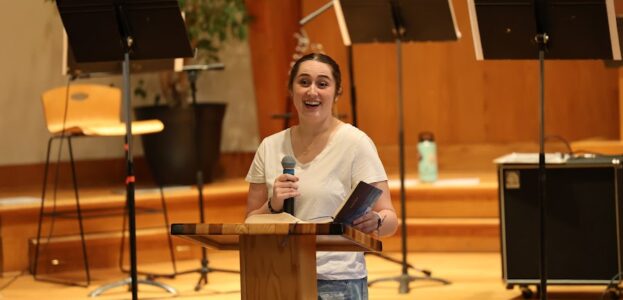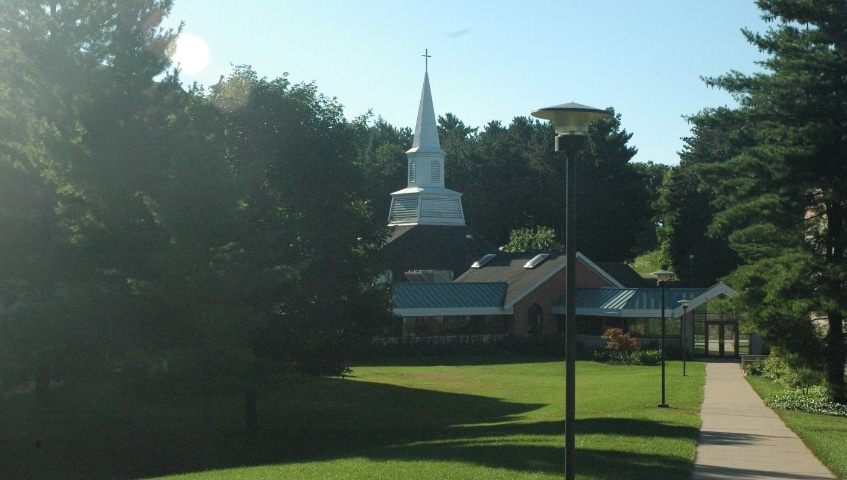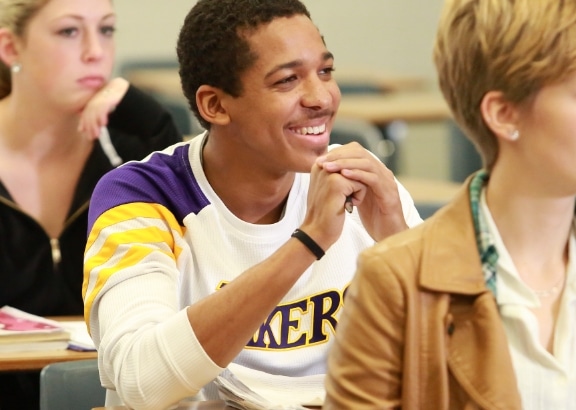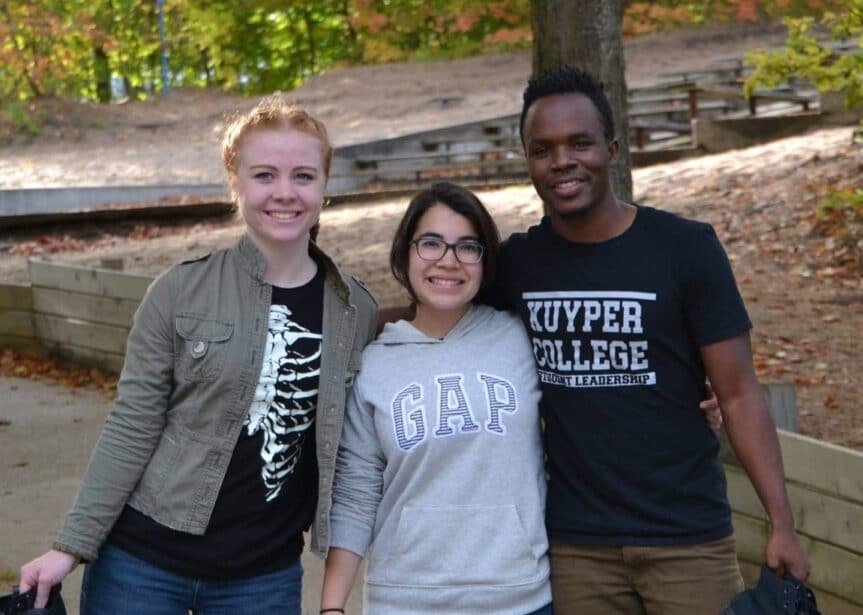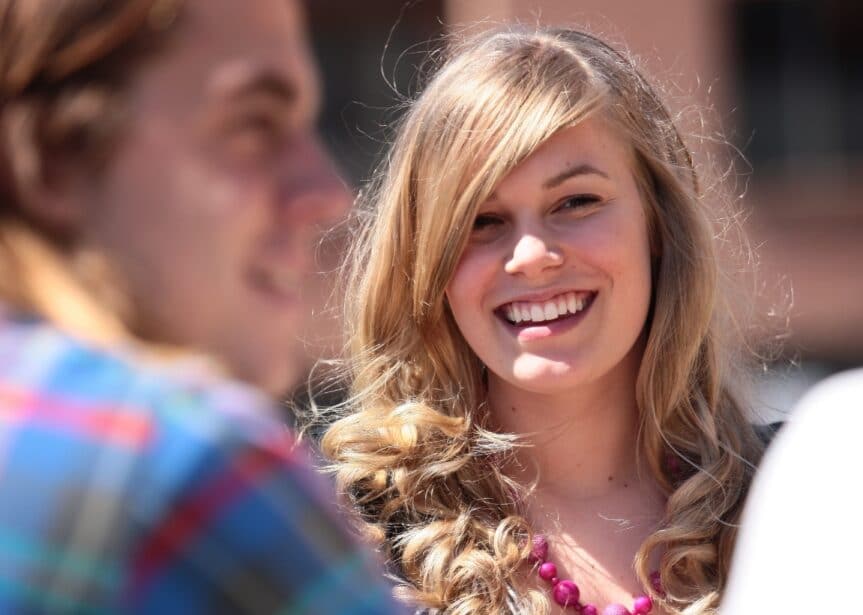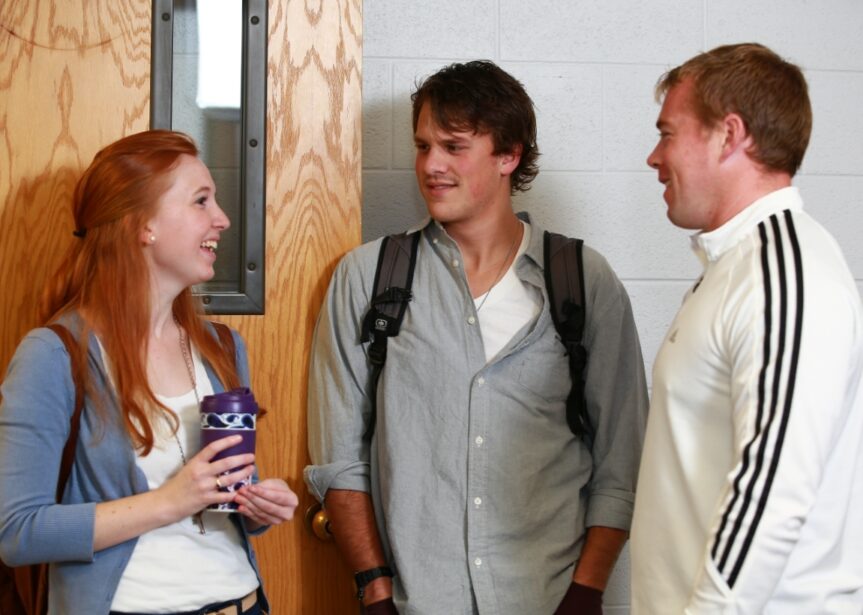Sophat Duch-My Story
In 1979, Kuyper Alumnus Sophat Duch’s family, fleeing from the brutal atrocities of the Khmer Rouge regime, escaped from Cambodia to Thailand, where he was born in the Cambodian refugee camp of Meirut. In 1982, he came to the United States with his mother, father, grandparents and three aunts. Today, he serves as associate pastor of the Cambodian Fellowship CRC in Holland, Michigan. This is his story.
My coming to Christ is a testimony to God’s sovereignty over my life. My father and grandfather were away from their village when it was invaded. When they returned, they found the corpses of nine of my father’s siblings who had been brutally executed. Shortly thereafter, in 1979, my family fled through the landmine-filled jungles of Cambodia to Thailand. They lived in a refugee camp, where I was born in 1981. In 1982, we were sponsored by the Christian Reformed Church and came to the United States.
During my early years in Michigan we lived in Kalamazoo. My family, who were Buddhist, were poor immigrants without any education or skills. They picked up whatever jobs they could get. My father worked at a scrap yard sorting metal until an accident left him blind in one eye. He then worked as a janitor for Bronson Hospital. My mother worked at a laundromat folding customer’s laundry. Although my family was sponsored by the CRC, we didn’t go to church and definitely were not believers. While living in Kalamazoo my brother and sister were born. It was just the five of us for a while, until my grandparents came to live with us. My grandparents cared for all of us while my parents were at work. Several years later, when I was 8 years old, my parents found factory jobs in Holland, Michigan. They commuted from Kalamazoo to Holland and stayed at a friend’s house during the week. I saw less of my parents, and the strain on our family became great. My mother had strong differences with my father and my grandparents, and soon after they divorced.
After the divorce, my family relocated to Holland. The divorce left both my parents and us in very poor circumstances. It was then that my father reached out to the Cambodian Fellowship CRC for financial support. Out of respect for the church, my father started attending, and he would bring my siblings and me as well. During that time, while I was exposed to Christ, I didn’t quite understand what faith meant. When I was in eighth grade, I began to bombard the Cambodian Sunday school teacher with many questions concerning the Bible. He couldn’t answer all of them, so he said, “Sophat, if you want to know all the answers, why don’t you read the Bible for yourself?” So, I started reading and studying on my own, and eventually and unexpectedly, I understood! I believed and trusted, and desired to know more.
The lack of mentors and teachers in my life motivated me to lead and teach others. In high school, I became involved with Youth for Christ, teaching Bible studies and also becoming the youth leader in the Cambodian Fellowship CRC. The senior pastor there was a graduate of Kuyper College and asked me to consider going to school there after high school, so I did.
I began my studies at Kuyper in 2000. I appreciated the smaller student body, the attention given to the students by the faculty, and the emphasis on missions and evangelism. I did not, at the time, sense a call to be a pastor, though I did want to be involved in youth ministry. While I had hoped to finish my education at Kuyper within four years, the Lord had a different plan. At Kuyper I became very close with my roommate, Teng Yang. In 2002, he died in a car accident. It hit me very hard, and I began a downward spiral. I performed poorly in my classes and then dropped out of Kuyper. My world fell apart. I left school, got fired from my job, broke up with my longtime girlfriend, and doubted if I was being called by God at all. However, over a period of time, I recovered. I became involved with the church again, got married and had two children. Then Gary Teja, a professor at Kuyper, suggested that I return to school. I enrolled again as a part-time student in 2006 and took my studies more seriously, determined to finish my pre-seminary program.
As a part-time student, I had to make up the courses I did poorly on, as well as complete the ones lacking for my degree. I was blessed to learn Greek from two masters, Dr. Bremer and the newly arrived Professor Hoogeboom. I found I had a knack for Greek and, in 2008, received the Greek award. Being at Kuyper for a span of nearly 10 years, I sat through two presidents, many old and new faculty, as well as changing seasons of students. What didn’t change, and had such a great impact on me, was the care and openness of the faculty. I had so many edifying conversations with them which I will never forget. The impact Kuyper left on me is priceless! The friendships, the discipleship, the mentoring, the education and the experience have been invaluable. It has made me the man I am today. Kuyper was also instrumental in meeting my wife—Mai Tang. An American-born Hmong, she was visiting a friend who was a student when we met. Although it took me the better part of a decade to complete my education, I have no regrets!
As my education at Kuyper was drawing to a close in 2011, it became clear that I would pursue seminary and seek to become a pastor. However, after two years at Calvin, the load of studies, together with the responsibility of small children at home and the financial burden of large student loan debt made it an untenable situation, so I left to pursue ordination as a commission pastor and passed my Classis Holland exams.
Today, I serve as associate pastor of the Cambodian Fellowship CRC. I lead an English ministry, as well as several Bible studies, preach twice a month, and disciple second and third generation Cambodians, while also serving as diversity champion for the Classis Holland leadership team.
Over time, I found many Asian churches in the CRC were struggling with the same issues that the Cambodian Fellowship CRC had. I made a request to the denomination for a grant to launch an annual pan-Asian youth conference—Christ-Like Asian Youth (CLAY). At the time, the grant was denied. Later, I visited a youth conference called Hmong Christian Reformed Youth (HCRY), which was hosted by three Hmong CRCs in the Midwest—the Hmong are an ethnic group living chiefly in China and Southeast Asia. After that visit I thought: “Why should I start something new when there is something like it already?” I brought the Cambodian youth to the all Hmong conference repeatedly. Then Laotian youth joined. Then Karen (Thailand/ Myanmar) youth and others. Long story short, I became the first non-Hmong on the planning staff. Our strategy was about being all inclusive, being supported by our churches, and changing the name of the conference from Hmong Christian Reformed Youth to Christ-Like Asian Youth. In 2014, after 20 years of HCRY, the name was officially changed to CLAY and continues to be supported by the churches. The conference meets for five days in the summer and focuses on preaching the gospel and teaching a Reformed worldview through workshops. There are many games and activities, as well as fellowship gatherings to foster friendships and discipleship. In addition, after finding that many Asian youth were leaving the church after going to college, I founded a ministry called South East Ethnic Discipleship (SEED) to train young adults in the foundation of the faith—equipping them for ministry and service in their local church.
Working with the Asian community can be difficult. Many immigrants who begin life in America with nothing are coming into church heavily influenced by eastern religions such as Buddhism and Shamanism. Many have also fallen prey to the prosperity gospel. Part of my work is to call people out of all of that into Christ’s free offer of grace. However, my favorite part of the call is preaching and teaching the Word of God.
The Lord is leading me to continue to foster unity among the different ethnic churches—to unite them in the faith in the pure gospel of Jesus Christ, in a love for the Word of God, and in a fellowship of true discipleship.



